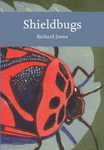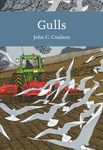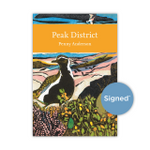![The Frayed Atlantic Edge The Frayed Atlantic Edge]()
Click to have a closer look
About this book
Customer reviews
Biography
Related titles
About this book
Over the course of a year, leading historian and nature writer David Gange kayaked the weather-ravaged coasts of Atlantic Britain and Ireland from north to south: every cove, sound, inlet, island. The story of his journey is one of staggering adventure, range and beauty. And one which reveals how the similar ingredients of wind, rock and ocean have been transformed into wildly different Atlantic cultures in coastal Scotland, Ireland, Wales and Cornwall. For too long, Gange argues, the significance of coasts has been underestimated, and the potential of small boats as tools to make sense of these histories rarely explored. The Frayed Atlantic Edge seeks to put this imbalance right.
Paddling alone in sun and storms, among dozens of whales and countless seabirds, Gange and his kayak travelled through a Shetland summer, Scottish winter and Irish spring before reaching Wales and Cornwall.
Sitting low in the water, as did millions in eras when coasts were the main arteries of trade and communication, Gange describes, in captivating prose and loving detail, the experiences of kayaking, coastal living and historical discovery. Drawing on the archives of islands and coastal towns, as well as their vast poetic literatures in many languages, he shows that the neglected histories of these stunning regions are of real importance in reconceptualising both the past and the future of the whole archipelago. It is a history of Britain and Ireland like no other.
Customer Reviews
Biography
David Gange was born in the Peak District. He is Senior Lecturer in Modern History at the University of Birmingham and has published history books with Oxford University Press, Cambridge University Press and Oneworld Publications. He has appeared on BBC2 and Smithsonian television as well as at the Hay Literary Festival and in the TLS. His writing as published nature writing and photography in various books and magazines. Recently, he held a research fellowship at the National University of Ireland, Galway.
Nature Writing
By: David Gange(Author)
404 pages, 16 plates with colour photos
Arguing that history is marginalising coastal communities, The Frayed Atlantic Edge is as much audacious travelogue as it is a powerful historical counter-narrative.
– Collective winner of the Highland Book Prize 2019
– BBC Countryfile Magazine Book of the Month
"An impressive intellectual and physical journey, allowing the reader to experience the Atlantic Coast from a fresh, deeply informed and invigorating perspective; rarely have our coastlines and cultures been explored with such understanding and respect."
– Highland Book Prize
"A tour de force"
– Moya Cannon
"This book is the product of a considerable physical achievement [...] A brilliant book, and a major step towards a genuinely radical reimagining of the history of the British Isles."
– Scotsman
"The strength of Mr Gange's account is his generosity. His own wry persona never overshadows the voices of past and present inhabitants [...] [his] prose is itself poetic and precise [...] His enthusiasm for snoozing in soggy sleeping bags is infectious [...] A dunking in the freezing sea, off the coast of County Mayo, leaves the author shivering but "ignited, elated". Surfacing from the book, the reader is invigorated, too."
– Economist
"An intensely political book [...] there is uncomplicated beauty as well as wonderful descriptions"
– Country Life
"Gange is both extraordinarily intrepid and deeply attentive to all he encounters [...] worth attention for its deeper argument as well as its thrilling surface."
– Spectator
"This is the book that has been wanting to be written for decades: the ragged fringe of Britain as a laboratory for the human spirit, challenging, beautiful, a place where sea and land are deeply interpenetrated, often materially impoverished and half obscured by a mawkish romanticism, but actually rich and inevitably complex: and here is the man to do it – physically resourceful, articulate, clear-eyed, informed, attentive to the realities, and crucially at home in all the elements. A book reliant in the end on one key fact: edges are revelatory."
– Adam Nicolson, winner of the Wainwright Prize 2018
"Some books are about the sea. David Gange's book is in the sea. He climbs through it, navigating fascinating stories that pop up like distant islands coming suddenly into view. Whales become living history, otters ribbons of water, geology and literature and especially poetry are drawn together by the intimate witness Gange bears to the ocean's edge. This beautifully written and grippingly researched book shows us that our shores are the beginning, not the ending, of things."
– Philip Hoare
"Energetic, entertaining and erudite – David Gange helps us to see these islands in a new and exciting way, taking us round its coastline, from Shetland down to Cornwall, in a journey that is sometimes boisterous, sometimes lyrical but always engaging."
– Donald Murray
|A wonderful blend of history and travelogue. Gange is such an attentive, generous writer. From his close and vivid observations of the natural world, to his championing of artists, writers and activists, this book feels like a timely reappraisal of how we think about the Atlantic coast, its communities and their languages, its history and its future. It is a perspective-shifting work."
– James Macdonald Lockhart

































